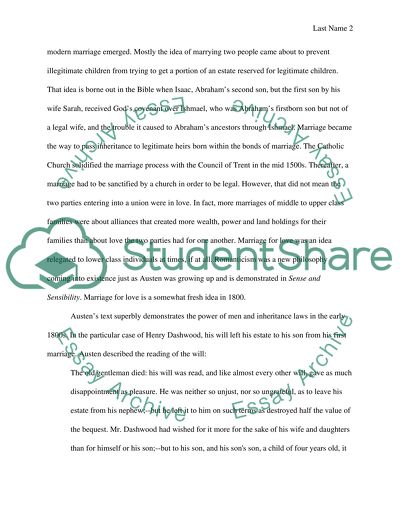Cite this document
(“Society, Love and Marriage in Sense and Sensibility Term Paper”, n.d.)
Retrieved from https://studentshare.org/literature/1393881-society-love-and-marriage-in-sense-and-sensibility
Retrieved from https://studentshare.org/literature/1393881-society-love-and-marriage-in-sense-and-sensibility
(Society, Love and Marriage in Sense and Sensibility Term Paper)
https://studentshare.org/literature/1393881-society-love-and-marriage-in-sense-and-sensibility.
https://studentshare.org/literature/1393881-society-love-and-marriage-in-sense-and-sensibility.
“Society, Love and Marriage in Sense and Sensibility Term Paper”, n.d. https://studentshare.org/literature/1393881-society-love-and-marriage-in-sense-and-sensibility.


